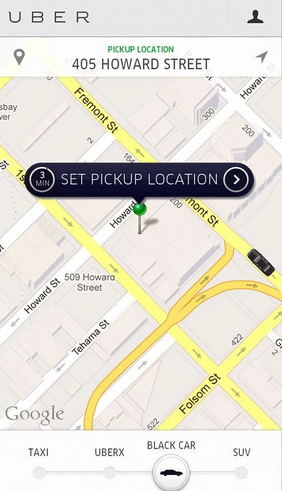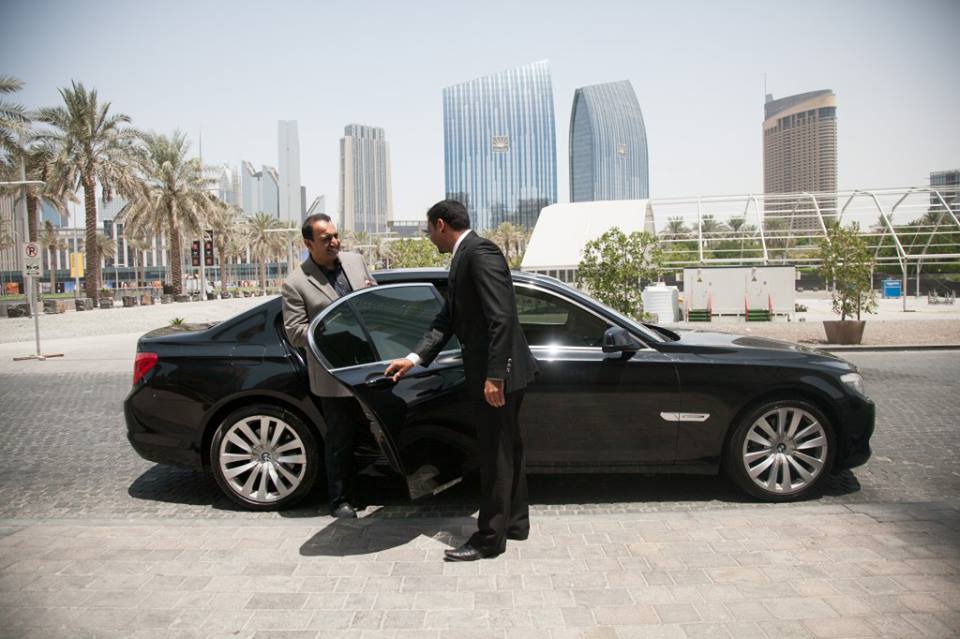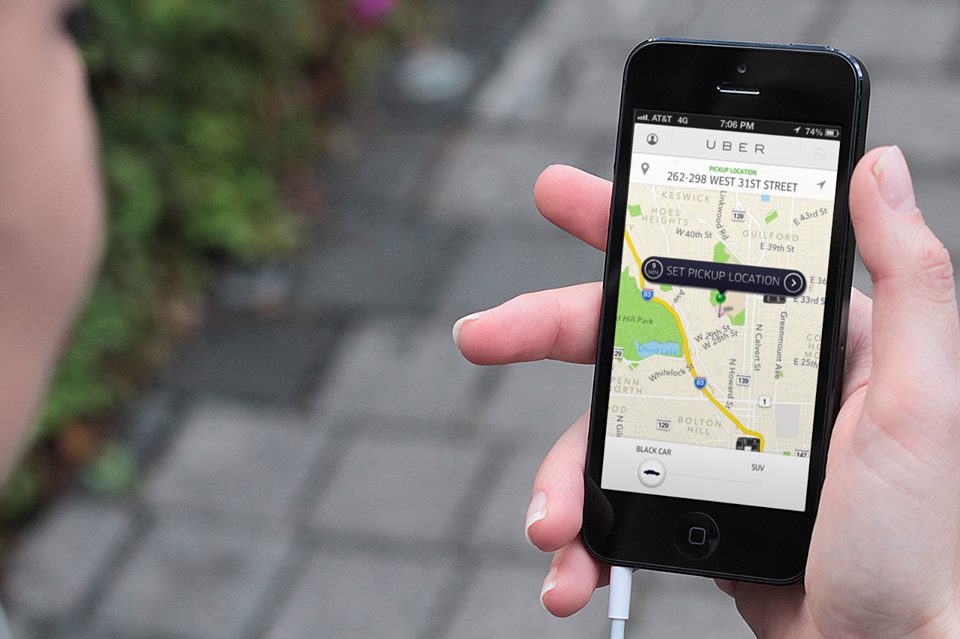
If you were out ringing in the new year on Tuesday evening in Portland, Ore., finding a ride home may have been difficult: There are only 460 licensed taxis serving a city of more than a half-million residents.
Uber, the San Francisco-based transportation network company that lets customers hail and pay for rides with their smartphones, wants to give Portlanders more options to get around town. In fact, the company has been trying to enter the market for more than six months without success.
“Despite your passionate pleas for us to come here, outdated local regulations designed to protect the taxi industry make our presence impossible,” Uber wrote in a blog post in July.
 It’s the latest example of the clash between traditional transportation companies and the new breed of tech-savvy upstarts upending the industry. In Seattle, startups such as Lyft, Sidecar and UberX (Uber’s lower-cost ridesharing option) are operating in violation of city laws, and objecting to proposed regulations that would bring them into compliance with city rules.
It’s the latest example of the clash between traditional transportation companies and the new breed of tech-savvy upstarts upending the industry. In Seattle, startups such as Lyft, Sidecar and UberX (Uber’s lower-cost ridesharing option) are operating in violation of city laws, and objecting to proposed regulations that would bring them into compliance with city rules.
The conflict in Portland involves the traditional upscale “Uber Black” service, which partners with existing professional drivers. And at least for now, it appears Portland will still be the only major West Coast city without Uber after the city’s Private for-Hire Transportation Board of Review last month unanimously rejected Uber’s requests to make the legal changes that the company says would allow it to operate Uber Black effectively.
The board, which advises city officials on decisions relating to the private for-hire transportation industry, plans to recommend in an official communication to Mayor Charlie Hales and City Commissioner Steve Novick that the city not make the proposed alterations.
As Uber continues to set up shop in more than 60 cities worldwide, it has struggled to find a way into the Portland market. The transportation network company first announced its intentions for the Rose City back in July and even ran an ice cream delivery promotion to help drum up support.
Then, a few months later, Uber’s head of global public policy Corey Owens met with the board of review — which is made up of industry representatives from both taxi and non-taxi companies — and asked that Portland make changes to its city code, including:
- Removing a requirement that forces customers to arrange a trip with an executive sedan or limousine at least 60 minutes prior to pick-up. For example, if you request a town car and it comes in 10 minutes, you must wait 50 minutes before you are legally allowed to enter the vehicle.
- Removing a requirement that forces executive sedans and limousines to charge a 35% fixed premium above current taxi rates established by the city.
 At the meeting, Owens explained that the 60-minute rule forces drivers to charge higher rates to make up for the hour-long wait.
At the meeting, Owens explained that the 60-minute rule forces drivers to charge higher rates to make up for the hour-long wait.
“What if that same driver could complete 30 trips a day at $15 a trip?” Owens asked the board. “Drivers and their companies will make two to three times what they were making before Uber Technologies was allowed into the market.”
Kathleen Butler, who chairs the Private-For-Hire Transportation Board and represents the city’s Revenue Bureau, told GeekWire via phone that these rules were put into place to regulate the for-hire industry and promote separation between different industry segments.
When taxis first began operating, Butler explained, they had to follow certain rules — accepting all customers regardless of trip distance, operating a 24/7 live dispatch, having cameras in vehicles, setting regulated fares, making a certain number of vehicles accessible to disabled people, etc.
But when the luxury providers entered the market, those companies didn’t want to meet all of those requirements because they offered a different type of transportation service — one that did not base fares on distance and time. So, in an effort to avoid being placed under the strict regulations, Butler said they asked to be distinguished from the taxi market.
That’s why the 60-minute and minimum fare rules were put into place. Without these regulations for luxury providers, Butler said that it would create a “competitive disadvantage” for the taxi industry and end up actually limiting choice for citizens.
 “If the taxis have all those extra rules and costs, and luxury competitors don’t [have any regulation], it destabilizes the taxi market,” she explained. “You’ll end up not having a taxi available when that elderly person needs to get to the drug store, or when someone comes out of the bar and doesn’t want to drive home. There might not be a taxi that wants to take those fares because of all this weakening in the taxi market.”
“If the taxis have all those extra rules and costs, and luxury competitors don’t [have any regulation], it destabilizes the taxi market,” she explained. “You’ll end up not having a taxi available when that elderly person needs to get to the drug store, or when someone comes out of the bar and doesn’t want to drive home. There might not be a taxi that wants to take those fares because of all this weakening in the taxi market.”
When asked if the board is trying to protect the taxi industry, which the city considers an extension of its public transportation system, Butler said no.
“We’re protecting industry segment separation, and ensuring stability and availability of service,” she said. “Protecting consumers is our first priority. If we can find a way to enable Uber, or anyone else who’s providing an option to operate without damaging that industry stability, then we’ll figure that out. We do want to foster competitive, innovative and efficient service.”
In a blog post written nine days after he testified in front of the Board, Uber’s Owens criticized Portland’s current regulations and likened them to government forcing Apple to make songs on iTunes cost a minimum of $3.50 or forcing Netflix to require customers to wait an hour before watching TV episodes.
“This laughable scenario is frighteningly real in the fight to revolutionize urban transportation,” Owens wrote.
 He also called Portland’s Private-For-Hire Transportation Board a “self-interested regulator,” since the Board includes representatives from the taxi industry itself.
He also called Portland’s Private-For-Hire Transportation Board a “self-interested regulator,” since the Board includes representatives from the taxi industry itself.
“This is regulation by the taxi industry for the taxi industry,” Owens wrote. “Consumers’ interests are getting bulldozed by lobbyists, campaign contributions, and cronyism run amok.”
In a letter with similar conviction, Uber CEO Travis Kalanick wrote to councilmember Novick and refuted Portland’s current city code that he said imposes “extreme limits on consumer choice and small business growth.”
“Protecting the taxi industry makes citizens and drivers worse-off and prohibits sedan companies and drivers from providing quality service at the best possible price,” Kalanick wrote.
Drivers and leaders from the for-hire industry — like many of their counterparts around the nation — are up in arms about Uber. Here are a few comments from the September meeting:
Broadway Cab president Raye Miles: “Uber takes the most profitable fares away from the taxicab drivers. What happens to a customer that gets used to using Uber and one day because of bad weather, surge pricing goes into effect and the fare goes up to a level that customer can’t afford anymore? Uber should not be allowed to provide on-demand service in the City of Portland.”
Lucky Limousine and Town Car CEO Alan Jochim: “What happens when another company like Uber comes to town who does not require their drivers to be permitted and insured? What happens if a consumer hits multiple applications on their phone and now has two or three different cars coming to pick them up? How is that going to be monitored? Who will keep track of the companies and the vehicles being used by them?
Kedir Wako from Union Cab Company: “I have been researching Uber in other cities and it appears Uber does not serve all people equally. They do not serve people with disabilities and they do not serve people with only cash. The cab drivers are not clear as to who they are working for. This sounds like discrimination.”
Butler noted how Portland actually does have a few smartphone apps, like Taxi Magic, that people can use to hail rides from existing providers. At the September meeting, Radio Cab Company lobbyist Darin Campbell noted that his service just launched an online reservation app on Android.
“We have the technology to fulfill that need,” Campbell said.
The Board’s problem with Uber doesn’t seem to be its smartphone technology; rather, it is mainly concerned with leveling the playing field and protecting consumers, as Butler indicated above. Butler also said that she actually hasn’t seen a huge demand for a service like Uber.
“Usually if someone is going to remove regulation, it comes because there is a public need for that,” Butler said. “Frankly, there hasn’t been much call to action from Portland citizens and we haven’t received much public comment from people who want Uber.”
 However, there are at least a few who have voiced support for Uber in Portland, such as the Technology Association of Oregon, the Portland Business Alliance, several Portland startups and entrepreneurs, the Oregon Restaurant & Lodging Association, as well as The Oregonian’s Editorial Board, which wrote this in October:
However, there are at least a few who have voiced support for Uber in Portland, such as the Technology Association of Oregon, the Portland Business Alliance, several Portland startups and entrepreneurs, the Oregon Restaurant & Lodging Association, as well as The Oregonian’s Editorial Board, which wrote this in October:
“There’s something to be said, however, for pushing back against a regulatory system that has produced a comparative taxi shortage while standing in the way of a service many people may want.”
Uber’s difficulties with Portland are not new, as the company has faced strong opposition from both the incumbents and governments themselves in several cities around the world. The startup is fighting similar legal battles in places like Houston, Calgary and Miami, which all have regulations in place — like the 60-minute rule and minimum fares — that mirror Portland’s.
But some cities, like Washington D.C., have figured out ways for Uber and taxicabs to co-exist.
As for the fast-growing “ride-sharing” startups like Lyft and Sidecar, which allow people to use their personal vehicles to shuttle passengers around (Uber’s “UberX” service falls into this category), they told us that while they think Portland would be a great fit, neither has plans to launch in the Rose City anytime soon. Three hours north up Interstate-5, those companies are waiting to see how Seattle decides to regulate them.
After making their official recommendation to the Portland City Council, Butler said that the Private-For-Hire Transportation Board will explore updates to city code that may account for new technologies and “help guide companies like Uber in terms of what they need to do in order to operate in Portland.” The Board will examine model regulations issued earlier this year by the International Association of Transportation Regulators — but Uber has made it clear that it’s not a fan of those rules.
“They are a tried-and-true model of anti-competitive and collusive policymaking,” Uber’s Owens wrote of IATR’s proposed regulations. “They are a model of serving producers instead of consumers. And they are an excellent model for cities looking to find themselves on the wrong side of history.”
Butler said that Portland is open to companies like Uber, but wants to make sure everyone is playing by the same rules.
“Our whole goal is to come up with some standards that will allow Uber to come in, as long as they are willing to follow the rules,” she said. “I think it would be much better if they would just try and work a little bit with the regulators to understand perspective. That’s up to them.”



